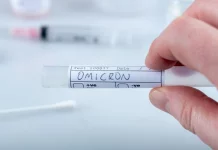Green technologies, often referred to as “Greentech,” are at the forefront of creating a sustainable future for our planet. These innovations are not just trends but necessities as we face the consequences of climate change and strive to reduce our environmental footprint. Here’s an overview of the latest advancements in green technologies and their impact on environmental sustainability:
Harnessing Solar Energy
Solar energy has long been a champion of clean, inexhaustible energy. Recent advancements have led to high-efficiency photovoltaic cells and solar batteries that are more practical and cost-effective. These cells can capture a wider spectrum of sunlight and function even on cloudy days or in partial shade. Additionally, modern solar batteries can store surplus power generated during the day for use at night, ensuring a consistent supply of green energy.
Wind Power Innovations
Wind power is becoming a significant player in renewable energy. Innovations like turbine-solar panel units that can be used on rooftops are making wind power more accessible. These units produce 40% more energy than a pure solar system and can generate power round the clock. Moreover, new wind generators with no external moving parts are being developed to sit on the edge of roofs, using natural airflow to generate power.
Green Technology in Water Conservation
Water conservation technologies are critical in addressing water scarcity. Innovations in water purification and recycling are making it possible to treat wastewater and make it drinkable or suitable for other purposes. This not only conserves water but also reduces the environmental impact of wastewater.
Eco-Friendly Materials and Construction
The development of eco-friendly materials and green construction methods is reducing the environmental footprint in various industries. These materials are designed to be more sustainable and have a lower impact on the environment throughout their lifecycle.
Electric Transport
The transportation sector is seeing a shift towards electric vehicles (EVs), including cars, trucks, buses, and scooters. This move is crucial in reducing emissions and creating a more sustainable transportation system.
The Circular Economy
The concept of the circular economy is gaining traction, encouraging the reuse, repair, and recycling of materials and products to reduce waste and resource consumption.
Decentralized Energy Systems
Decentralized energy systems are emerging, allowing for more localized and efficient energy production and distribution. This reduces the reliance on large, centralized power plants and promotes the use of renewable energy sources.
The Impact on Environmental Sustainability
These advancements in green technologies are having a profound impact on environmental sustainability. They are helping to reduce greenhouse gas emissions, conserve natural resources, and promote a healthier ecosystem. As these technologies continue to evolve and become more integrated into our daily lives, they offer hope for a cleaner, more sustainable future for all.



















